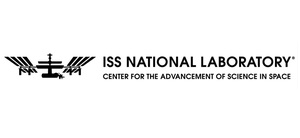Session To Highlight Latest Scientific Advancements and Look Ahead
BOSTON, May 30, 2024 /PRNewswire/ -- Pioneers in transformative research with clinical applications will discuss how space is advancing discoveries within the biomedical community at the 13th annual International Space Station Research and Development Conference (ISSRDC). The session "Trailblazing New Frontiers in Science on the Space Station" will provide insights into recent breakthroughs in cancer, regenerative medicine, and in-space manufacturing that may profoundly impact health outcomes on Earth.
ISSRDC is the only conference dedicated to showcasing our nation's orbiting laboratory and the growing market economy in low Earth orbit. This year's ISSRDC will take place at the Boston Marriott Copley Place from July 29 through August 1.
The session, taking place on Tuesday, July 30, will be co-moderated by Jennifer Buchli, NASA chief scientist for the International Space Station (ISS) Program, and Michael Roberts, chief scientific officer for the ISS National Laboratory®. Both NASA and the ISS National Lab have prioritized utilization of the space station for cancer and other disease-related research, as well as in-space production applications and manufacturing opportunities, and this session features panelists within those respective fields.
Below highlights panelists slated for this session:
- Tony Atala, G. Link professor and director of the Wake Forest Institute for Regenerative Medicine, will lead a team of researchers launching multiple space station investigations focused on the vascularization of bioprinted tissue, sponsored by the ISS National Lab after originating through NASA's Vascular Tissue Challenge.
- Catriona Jamieson, director of the Sanford Stem Cell Institute at the University of California, San Diego, has led multiple ISS National Lab-sponsored investigations focused on cancer. Additionally, her team worked with commercial astronauts through Axiom Space to uncover new insights into protecting astronaut health while improving cancer treatment on Earth.
- Adrian Radocea is chief science officer at Varda Space Industries, which successfully completed its first mission to crystallize therapeutics in its free-flying spacecraft in low Earth orbit, opening new and exciting possibilities for in-space biopharmaceutical development.
- Kenneth Savin is chief scientific officer for Redwire Space, which has developed various space station facilities available to the research community. Recently, Redwire used its BioFabrication Facility to successfully print the first human meniscus and cardiac tissue in space. The company also validated its Pharmaceutical In-space Laboratory by collaborating with Eli Lilly and Company, recently returning 36 crystallography investigations designed for potential pharmaceutical use.
"We are privileged to have these leaders in biomedical research and in-space manufacturing join us at ISSRDC to share their recent discoveries and perspectives on the next decade of results," said Roberts. "We look forward to an engaging conversation about how low Earth orbit provides a unique environment to accelerate the diagnosis, prevention, and treatment of disease and opens novel pathways for drug development to benefit humans on Earth and those living and working off our planet."
A series of announcements in the coming weeks will highlight additional keynote speakers and panel sessions at ISSRDC 2024. This year's conference also features lightning talks, plenary presentations, technical sessions, workshops, an investor session, and networking opportunities. A marketplace expo allows companies to showcase the advancement of opportunities in low Earth orbit and will provide a venue to meet with researchers and stakeholders.
ISSRDC is hosted by the Center for the Advancement of Science in Space™ (CASIS™), manager of the ISS National Lab, NASA, and the American Astronautical Society. To learn more about ISSRDC, including how to register, exhibit, and become a sponsor, please visit our conference website.
To download a high-resolution image for this release, click here.
About the International Space Station (ISS) National Laboratory:
The International Space Station (ISS) is a one-of-a-kind laboratory that enables research and technology development not possible on Earth. As a public service enterprise, the ISS National Laboratory® allows researchers to leverage this multiuser facility to improve quality of life on Earth, mature space-based business models, advance science literacy in the future workforce, and expand a sustainable and scalable market in low Earth orbit. Through this orbiting national laboratory, research resources on the ISS are available to support non-NASA science, technology, and education initiatives from U.S. government agencies, academic institutions, and the private sector. The Center for the Advancement of Science in Space™ (CASIS™) manages the ISS National Lab, under Cooperative Agreement with NASA, facilitating access to its permanent microgravity research environment, a powerful vantage point in low Earth orbit, and the extreme and varied conditions of space. To learn more about the ISS National Lab, visit our website.
As a 501(c)(3) nonprofit organization, CASIS accepts corporate and individual donations to help advance science in space for the benefit of humanity. For more information, visit our donations page.
Media Contact: |
Patrick O'Neill |
904-806-0035 |
|
International Space Station (ISS) National Laboratory |
Managed by the Center for the Advancement of Science in Space, Inc. (CASIS) |
6905 N. Wickham Rd., Suite 500, Melbourne, FL 32940 • 321.253.5101 • www.ISSNationalLab.org |
SOURCE International Space Station National Lab

WANT YOUR COMPANY'S NEWS FEATURED ON PRNEWSWIRE.COM?
Newsrooms &
Influencers
Digital Media
Outlets
Journalists
Opted In






Share this article